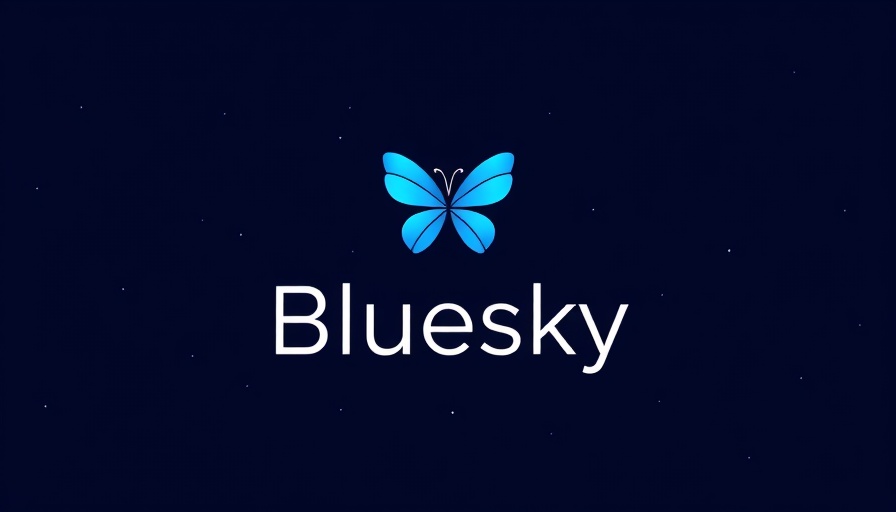
Bluesky's Bold Decision: Blocking Access in Mississippi
In a surprising move, social networking startup Bluesky has announced that it will block access to its platform in Mississippi, choosing to do so rather than comply with the state's new stringent age assurance law. The law, known as HB 1126, requires social media platforms to verify the age of all users, a mandate that Bluesky believes poses significant privacy risks and operational hurdles for a small company.
Understanding the Age Assurance Law
Mississippi’s HB 1126 mandates that all users must undergo age verification before accessing social platforms. This includes parental consent for minors under 18, which Bluesky argues goes beyond simply safeguarding children and imperils free speech. The penalties for noncompliance are steep, potentially costing companies up to $10,000 per user, a financial burden that could prove fatal for smaller platforms.
Why Troublesome for Small Platforms?
Bluesky, unlike tech giants with extensive resources, operates with a small team, limiting its capacity to implement the heavy infrastructure required for compliance. The company articulated that establishing age verification systems would not only demand substantial technical investments but also necessitate ongoing privacy protections and compliance measures. In a blog post, they stated, “This dynamic entrenches existing big tech platforms while stifling the innovation and competition that benefits users.”
Comparative Analysis of Age Verification Laws
This Mississippi law starkly contrasts with other age verification regulations, such as the United Kingdom's Online Safety Act, which only requires age checks for specific content. The broader scope of Mississippi’s law emerges as an unreasonable requirement that could deter innovation and response from smaller social media platforms, resulting in limited choices for users.
Impact on Free Speech and Innovation
The implications of this decision extend beyond Bluesky itself. As smaller players are edged out of the market due to compliance pressures, the variety of voices and perspectives in the social media ecosystem may dwindle. Bluesky's leaders argue that the law threatens to curtail free speech by imposing excessive hurdles that would likely benefit established tech giants while damaging fledgling platforms aiming to diversify online discourse.
Misconceptions Surrounding Age Verification Laws
A significant misconception about age verification is that it is an absolute solution to online safety issues. While the aim is to protect minors, critics point out that such laws can create more barriers than they solve, pushing platforms to either abandon state markets or compromise user privacy. In discussions of digital safety, it’s essential to question whether these laws achieve their intended purpose or merely dissuade innovation.
The Broader Context: Technology Industry Responses
The legal landscape surrounding age verification continues to evolve. Bluesky isn't the first to openly challenge such laws. Other platforms may also decide against compliance, advocating for user privacy while questioning the efficacy of such regulations. The response from the tech industry will likely shape future discussions on digital freedom and user rights, nurturing a vital debate over the role of government regulation in tech innovation.
Exploring Alternatives to Age Verification
As the discourse on age verification intensifies, tech companies may explore alternative solutions that balance safety with privacy. Innovative methods such as decentralized identity verification, allowing users more control over their data, could emerge as viable options. Companies should adopt a proactive approach that promotes user trust while safeguarding young individuals, ensuring their younger audience is protected without compromising the liberties of all users.
In a world where technology evolves rapidly, this ongoing debate on regulatory compliance versus user empowerment is crucial. Bluesky's decision to block service in Mississippi emphasizes a significant principle at stake—how we prioritize user rights and innovation in a tech-driven era. We should carefully consider the implications of such laws, questioning their effectiveness and the potential casualties of overly broad regulations. As developments unfold, observing other platforms' responses will provide further insights into the tech industry's trajectory in navigating legal landscapes while fostering innovation.
 Add Row
Add Row  Add
Add 



Write A Comment